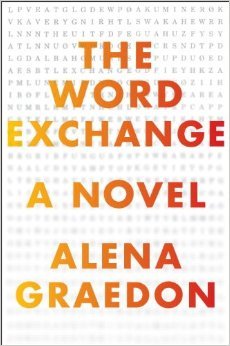Ophelia and the Marvelous Boy by Karen Foxlee is just ... marvelous. I know that sounds contrived, but really it isn't. I adored this book. Ophelia is an eleven-year-old girl who is spending her winter vacation in a cold, drafty museum while her father prepares an exhibit showcasing the world history of swords. This is a difficult time for Ophelia, her sister Alice and their father. The girls are mourning the loss of their mother and their father is unable to talk about her. Ophelia's grief is made tangible by the many mentions of how long it has been since her mother's death. Each time she looks at a clock or her watch, she thinks something similar to "it was exactly three months, nine days, and half an hour since her mother had died." I found her exactness in remembering the time without her mother heartbreaking.
While wandering through this museum that is reportedly large enough for many children to have become lost and never found, Ophelia discovers a locked door that she cannot resist. I knew I was going to love her character when she was described this way: "Ophelia didn't consider herself brave, but she was very curious." Curiosity is a wonderful quality and leads to so many great adventures. Once Ophelia peeks inside that keyhole, she is set for the adventure of her life. Inside she sees a young boy just her age, but she soon learns that he has been held captive inside that room for over seventy years, never aging. In fact, his inability to age is exactly what makes him the Marvelous Boy. Imprisoned by the Snow Queen, this boy needs Ophelia's help to escape and defeat the Snow Queen before she is able to destroy the world.
This is a very exciting book and just the kind of thing that I think my children would enjoy added to our summer reading list. It is beautifully written and so much fun to read. While I do often feel irked that fiction, be it books or movies (I'm looking at you, Disney) seem so often to kill off the mother, in this case it didn't bother me so much. Perhaps that was because the mother was present throughout the book via flashback as Ophelia recalled her mother's illness. It felt as though it were giving her, and so other young readers, an opportunity to come to terms with something so difficult. I absolutely loved this book. Pick this book up and save it for a chilly winter read or enjoy it now to counteract the heat of summer. I hope you will love it, too.




